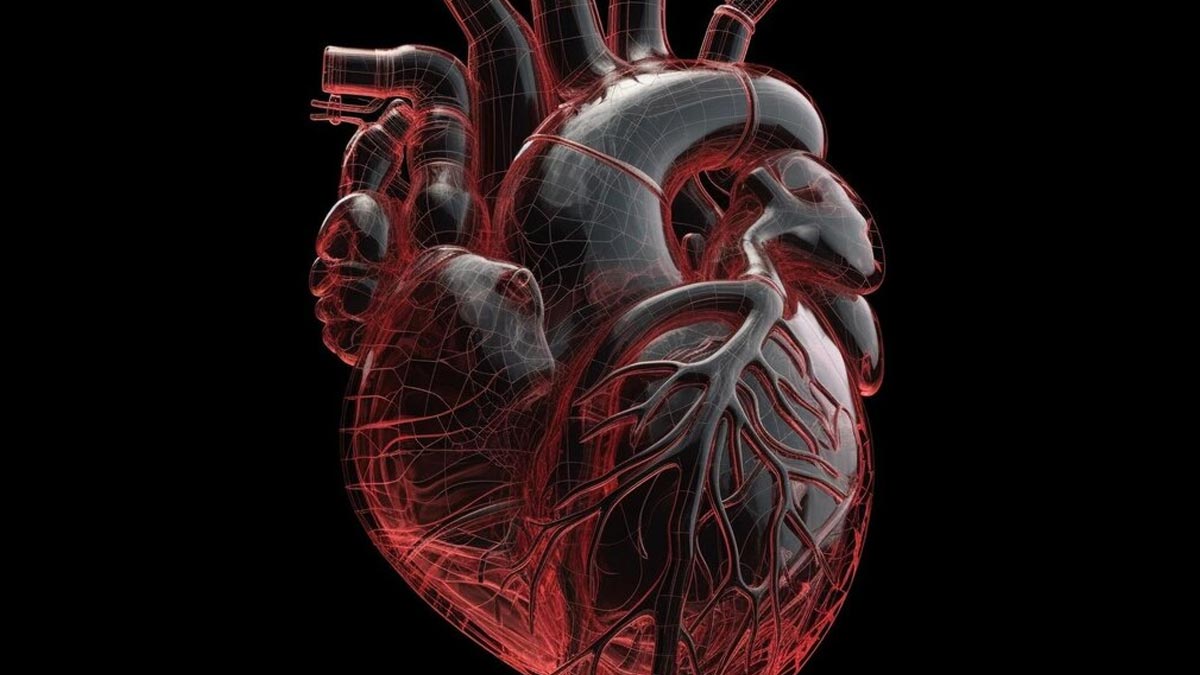
Myocarditis, or inflammation of the heart muscle, is also referred to as myocardium inflammation. This inflammation has the potential to weaken the heart and hinder its ability to pump blood efficiently. If not treated, it can lead to complications, such as heart failure, cardiomyopathy, and lug issues. We spoke to our expert Dr Kumar Kenchappa, Consultant - Interventional Cardiologist, Manipal Hospital, Hebbal, Bengaluru, who explained the symptoms, causes, diagnosis, and treatment.
Table of Content:-

According to Johns Hopkins Medicine, myocarditis arises from inflammation in the heart muscle (myocardium), typically triggered by the body's immune response to infections. This inflammation can result from viral infections or broader systemic inflammatory conditions like autoimmune disorders. In severe instances, myocarditis can lead to weakened heart muscle function, impairing its ability to effectively pump blood to other body parts.
Causes Of Myocarditis
“Microbial infections, predominantly viral, are frequently the primary culprit behind myocarditis, although bacterial or parasitic infections can also induce the condition”, said Dr Kenchappa.
He added, “Myocarditis may also arise from non-microbial sources, such as certain medications (drug-induced myocarditis) and specific inflammatory conditions. Occasionally, the exact cause of myocarditis remains unidentified.”
The severity of the condition varies, ranging from mild discomfort to severe, life-threatening complications. Understanding the symptoms, diagnostic procedures, and treatment options is essential for timely intervention and enhanced patient outcomes.
Also Read: Study: Myocarditis Incidence After Covid Vaccine Low In Teenagers And Young Adults
Symptoms of Myocarditis

The symptoms of myocarditis can vary widely. Frequently, they may resemble or coincide with those of other heart-related ailments. While some individuals may show no symptoms, common manifestations include:
- Chest pain: A common symptom, often described as a dull ache or pressure in the chest
- Shortness of breath: Difficulty breathing, particularly during physical activity or when lying flat
- Fatigue: Ongoing tiredness or weakness, despite sufficient rest
- Heart palpitations: Sensations of rapid, irregular, or fluttering heartbeats
- Lightheadedness or dizziness: Feeling faint or dizzy, especially upon standing up
- Swelling in the legs or feet: Oedema, particularly noticeable in the lower extremities
Diagnosis of Myocarditis
There is no single test that can diagnose myocarditis. Doctors typically use a combination of tests to rule out other possible causes of your symptoms and to confirm a diagnosis of myocarditis. Dr Kenchappa listed the diagnosis tests as follows:
- Blood tests: Detecting markers of inflammation and cardiac enzymes
- Electrocardiogram (ECG): To evaluate the heart's electrical activity and identify the abnormalities
- Echocardiogram: An ultrasound scan to visualise the heart's structure and function, assessing for abnormalities, such as reduced heart function or the presence of fluid around the heart
- Cardiac MRI scan: Provides detailed images of the heart, aiding the detection of inflammation and tissue damage
Also Read: What Does Your Heart Rate Tell You? Expert Explains Its Variations And Factors Affecting It
Treatment Options

Treatment and management of myocarditis is primarily directed at alleviating the symptoms, reducing inflammation, and preventing complications. The treatment strategies may vary depending on the severity of the condition and the underlying cause. Dr Kenchappa listed the treatment measures as follows:
- Medications: Anti-inflammatory drugs, such as corticosteroids or Nonsteroidal Anti-Inflammatory Drugs (NSAIDs), may be prescribed to reduce myocardial inflammation and alleviate symptoms.
- Antibiotics or antiviral medications: If a bacterial or viral infection is identified as the cause, appropriate antimicrobial therapy may be recommended.
- Immunosuppressive therapy: In cases of severe myocarditis or autoimmune-related inflammation, immunosuppressive agents may be used to modulate the immune response and prevent further damage to the heart muscle.
- Supportive care: Patients with myocarditis may require supportive measures, such as rest, fluid management, and monitoring of cardiac function.
According to Johns Hopkins Medicine, in instances of severe cases involving heart rhythm irregularities, your physician may opt for the implantation of a pacemaker or an implantable cardioverter defibrillator (ICD). If the heart's function does not show improvement and persists in causing significant heart failure, you may undergo an assessment for a potential heart transplant.
Bottomline
Dr Kenchappa concluded, “Myocarditis is a complex condition. If you notice any symptoms indicating myocarditis, seeking immediate medical attention is crucial for timely intervention and optimal treatment. Although diagnosing and treating myocarditis can be intricate, advancements in diagnostic methods and therapies provide promising prospects for individuals affected by this potentially severe ailment.”
[Disclaimer: This article contains information provided by an expert and is for informational purposes only. Hence, we advise you to consult your expert if you notice any symptoms for timely diagnosis and treatment.]
Also watch this video
How we keep this article up to date:
We work with experts and keep a close eye on the latest in health and wellness. Whenever there is a new research or helpful information, we update our articles with accurate and useful advice.
Current Version